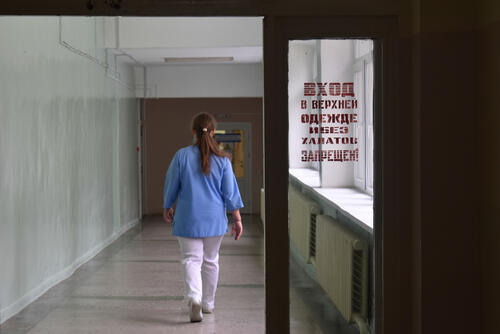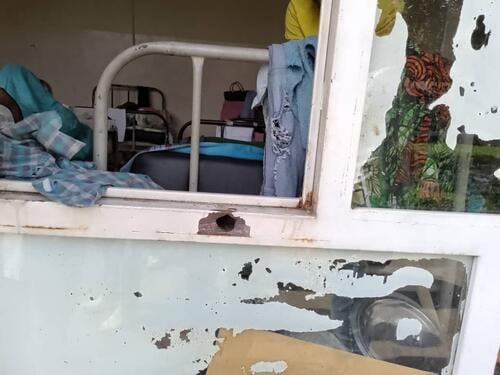“On the 10th day of my treatment, I could tell that something was wrong with my ears,” says Maria. “The drugs were affecting my auditory nerve. Having the injections was very painful and left lumps and bumps on my body. Even sitting down was painful.”
Maria was receiving treatment for drug-resistant tuberculosis (DR-TB). Despite gains made over the past 20 years, Belarus is still one of the 30 countries with the highest tuberculosis (TB) burden globally. Around one-third of patients in Belarus have strains of the disease that are resistant to the most potent TB medicines.
The standard treatment undergone by Maria takes up to 20 months and involves painful injections and a plethora of possible side effects, ranging from aches and pains to depression to irreversible hearing loss.
I felt like I’d drawn an unlucky lottery ticket. I honestly thought I would die, that everything was over for me.Maria, DR-TB patient
A revolution in TB treatment
For decades, DR-TB patients had no option but to undergo this long and exhausting course of treatment. But in 2017, Médecins Sans Frontières (MSF) started a revolutionary clinical trial, known as TB-PRACTECAL, to test innovative approaches towards DR-TB treatment.
In three countries – Belarus, South Africa and Uzbekistan – we treated patients with a new short course of drugs, which were all taken orally, avoiding the need for painful injections.
In 2022, the results of TB-PRACTECAL were released. They proved that the new all-oral six-month treatment regimen – comprising the drugs bedaquiline, pretomanid, linezolid and moxifloxacin, known collectively as BPaLM – was safer and more effective at treating DR-TB than current accepted treatment practices. This announcement turned over a new page in the history of TB treatment worldwide.
Soon after, the World Health Organization released a rapid communication on the guidance for the treatment of DR-TB, now recommending programmatic use of the six-month BPaLM regimen in place of the longer existing regimens.
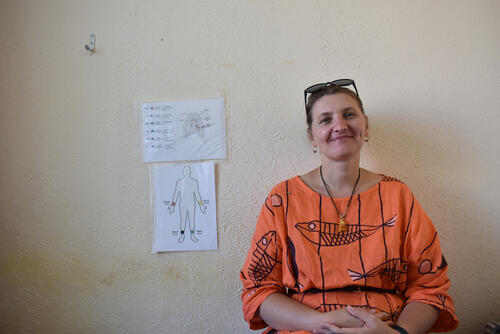
One patient who took part in MSF’s clinical trial was Volha, a mother of three from Minsk. Soon after giving birth to twins, she was shocked to be diagnosed with extensively drug-resistant TB.
Although separated from her newborns so as not to put them at risk of infection, she still managed to embark on the treatment with a positive attitude. Her optimistic outlook and the support she received from her family were major factors in her recovery, she says.
“The locomotive of the treatment rode smoothly and did not stumble at any point,” says Volha. “Everything was done with love for the patients.
“I tried to see the positive in everything, for example, my handful of pills could be laid out in the shape of a bunny.”
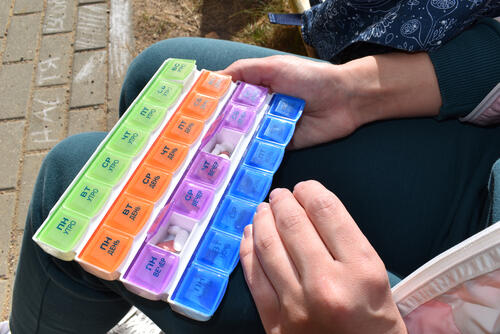
Making innovation available to all
In Belarus, the TB-PRACTECAL clinical trial has been followed by a new pioneering operational study known as SMARRTT – which stands for ‘six-month all-oral regimens for rifampicin-resistant tuberculosis treatment’.
MSF, in close partnership with the Republican Scientific and Practical Centre of Pulmonology and Tuberculosis in Belarus, is currently recruiting patients for the SMARRTT study, with 300 people already enrolled. The plan is to roll it out across the country.
“Previously, during the TB-PRACTECAL clinical trial, we could only include patients from Minsk and the Minsk region, but now we can include patients from all over Belarus,” says Dr Natalia Yatskevich, principal investigator of the SMARRTT study in Belarus and National TB programme doctor. “Pharmacists from different regions come to us and take away the medicines so that patients can be treated in their hometowns.”
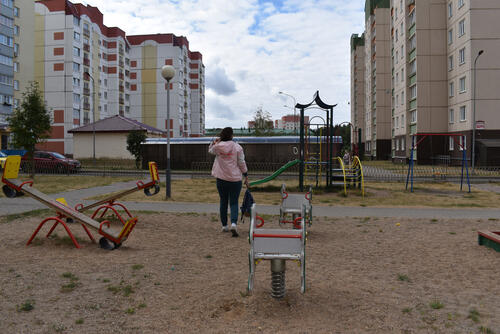
Maria is enrolled in the SMARRTT study, after undergoing two long years of treatment which ultimately failed to cure her of DR-TB. “For me, everything over the past two years has revolved around TB,” says Maria.
“Living like that was impossible. People can’t do anything because they feel awful [during the treatment]. If only I had started treatment with a short course right away, my life would have been different.”
TB has changed the life of Maria and her family completely; they have had to move to a new city and make a new circle of friends. During this difficult time, Maria’s husband was a great support to her.
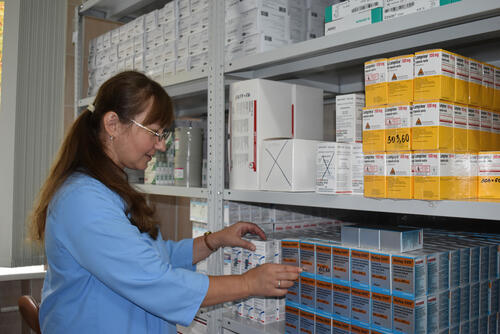
Overcoming TB stigma
In countries where TB is prevalent, stigma around the disease is still a major problem, and Belarus is no exception. Many TB patients face a lack of acceptance by society and even by those close to them.
“I told my friend Anya about the diagnosis and she panicked,” remembers Maria. “She asked: ‘What if you infect me?’ I kind of understood her point of view. After that Anya stopped communicating with me. She has two university degrees, she’s a smart person.”
Improving public attitudes towards TB patients and developing social awareness take time and require long-term efforts.
Former TB patient Volha believes that its easy for people with TB to be ignored by society. “People with TB are hardly visible,” she says. “We all know from the Belarusian literature that people with TB are pale girls who faint all the time. But in reality, very few people with TB are like that.”
“So many times I’ve heard people say: ‘What, people still get TB nowadays?’ Well yes, they certainly do,” she says.



